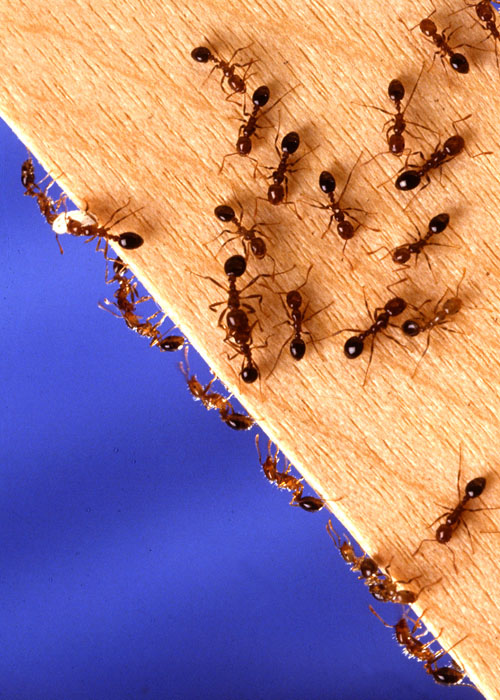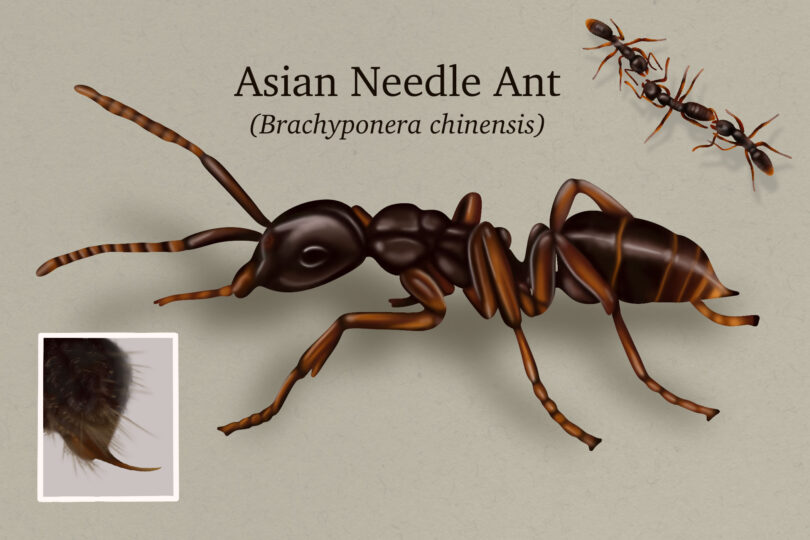Nothing will put a stop to early spring, planting-bed preparation like the appearance of a giant fire ant mound in the middle of a vegetable garden.
Fire ants like loose, undisturbed soil. So, it might not be too surprising to find that colonies often take up residence in Georgia vegetable gardens while the soil lies fallow during the winter.
Georgia gardeners who find themselves in this situation have two options: Abandon the planting bed to the ants for this season or work this spring to get rid of the ants.
Evicting ants from a vegetable garden can be tricky because most ant insecticides are not meant for use in vegetable gardens, said Dan Suiter, a University of Georgia entomologist who researches pests in urban and suburban environments. However, it is possible to have an ant free and edible garden with a little caution, planning and know how.
Suiter suggests using a bait product especially formulated for fire ants, such as Amdro. Bait-type insecticides control ant populations with the lowest possible dose of active insecticidal chemicals, and are pinpoint accurate — so they don’t impact pollinators, spiders or other beneficial insects. Baits must be eaten by the ants to be effective.
“It’s like a smart bomb,” Suiter said. “You’re putting out a very small concentration of material, and the only thing that it will affect is the fire ants.”
These baits have not been tested for use in vegetable gardens, so Suiter says apply them in a circumference around the garden, or put a small amount in a cap just outside any raised planters that may be infested.
“It is okay to put them outside the garden,” Suiter said. “Fire ants forage widely, and they’ll find it even 10 feet away.”
Warm sunny spring afternoons are the best time to put down the bait. Afternoon application ensures that the morning dew will not ruin the bait and the ground will be dry enough for the ants to get out and forage effectively. Don’t apply the bait if there is rain in the forecast for that day, and never water-in fire ant baits.
Under normal circumstances the ants will find the bait within two hours and carry it back to their mound. In about a week, many of the ants will be dead, but full colony collapse may require a second treatment. Homeowners should be sure to wait a week between treatments, Suiter said.
Some home remedies are more likely to cause the ants to move than to die, he said. Vinegar and other ant irritants may encourage ants to move their mounds, but they won’t get rid of the ants. Others — like grits — have no affect on ants, and still others — like boiling water and gasoline — can harm people and the environment.
“The mound is going to move, but you’re not going to get rid of them,” he said. “You’re not going to kill the ants. (The mound is) just going to pop up seven feet away.”
Essential oils, like spearmint or peppermint oil, applied directly to or around mounds have been shown to repel ants, but they will not kill them. They might be used successfully to deter ants from the bed in future, Suiter said.
For more information about problem ants, call your local UGA Extension agent at 1-800-AskUGA1 or visit caes.uga.edu/publications.








